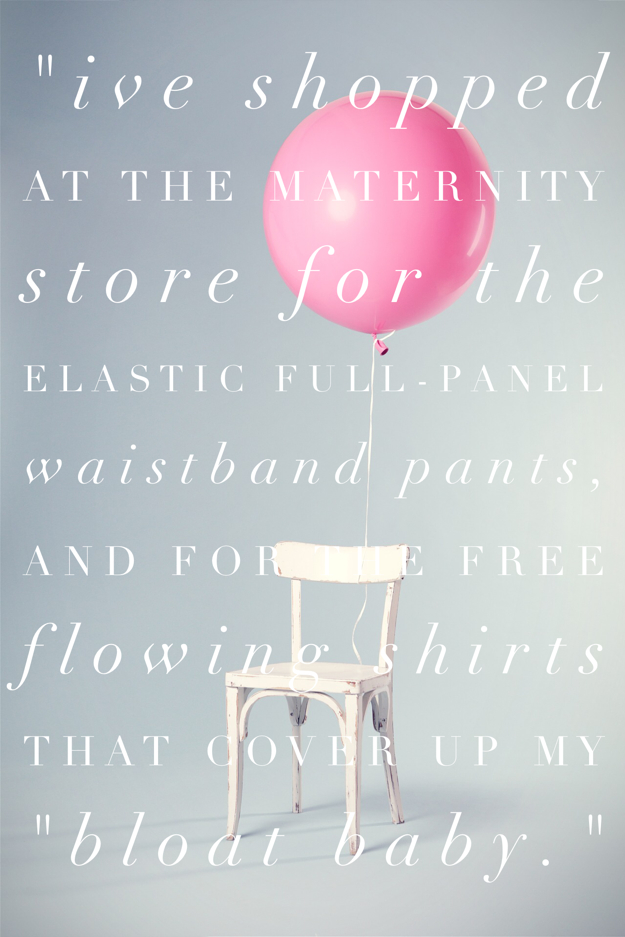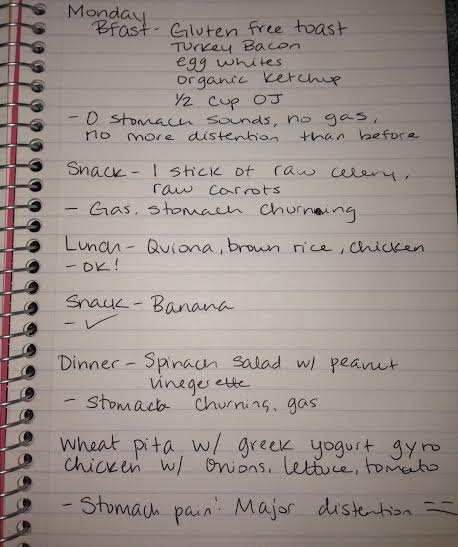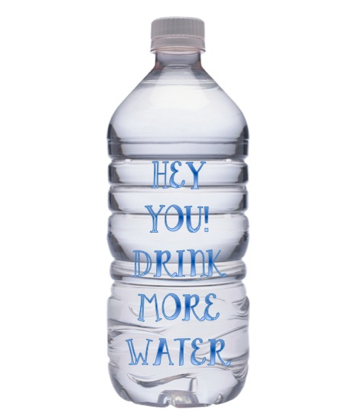What to Expect When You’re Not Expecting
Big belly, water retention, swelling, diarrhea, constipation, nausea, just plain uncomfortable.
This sounds like someone who may be expecting a child, but unfortunately, I’m not. That’s not to say that I haven’t had to shop at the maternity store before. I have never carried a child, but I do have the symptoms above that are often associated with being pregnant. I’ve shopped at the maternity store for the elastic full-panel waistband pants and for the free-flowing shirts that cover up my "bloat baby."

Painful bloat and distention with IBS
I’m sure you know the feeling. You eat lunch, and the buttons or clasp of your pants dig into your stomach to where you can barely breathe. Is that bloating or distention you are experiencing? I have read that distention is different than bloating, in that your stomach actually changes measurements in regards of circumference. It is estimated that half of the people with IBS deal with distention and bloating effects. About 80 to 90 percent of people with IBS. Bloating and distention can be one of the most severe symptom people with IBS deal with. That applies to me and it affects my quality of life. Not only do you have to worry about looking like you’re expecting when you’re not, it’s also painful, makes you feel sluggish and lethargic, depletes your energy, makes you feel full, and decreases your threshold for physical activity. There are many approaches to decreasing the amount of bloating and distention, with an elimination diet being the best approach. Work with your nutritionist to ensure you get vital nutrients during this process.

IBS food triggers
I’ve found that a lot of people with IBS, including myself, also have food sensitivities. If this is the case, your body may trigger a reaction when you eat the "toxic" food, and your body fills your cells with fluid to try to flush away that toxin. This can lead to extreme water retention and puffiness.
There are many times when I can’t even put on my rings in the mornings (much like a pregnant woman!). Make sure you are keeping a food diary to see what you ate prior to swelling, so you can make sure to temporarily eliminate it from your diet. If you re-enter the food into your diet after two weeks and you have the same reaction, it’s safe to say you should probably eliminate that food from your diet for good. Work with your nutritionist to learn more about the elimination diet. In addition, the more water you drink, the less water you will retain. It sounds counterintuitive, but this is the case.

Uncomfortable IBS symptoms
So, if you’ve ever just felt plain ‘ol uncomfortable, and you can’t get comfortable no matter what you do, it may be because your body is fighting off your IBS; the bloating, distention, water retention, change of bowel movements, and nausea. Unfortunately, even when these things start to subside and you see some kind of relief, we are often left exhausted from our body attempting to fight itself. If you are a pregnant IBS sister, this may make your symptoms worse. As if that even seems possible! The key to sending IBS symptoms packing is stress management. I've heard that prenatal yoga is great to try if you’re expecting, and regular yoga if you look like you’re expecting. It’s also good to meditate in both situations and always try to keep your gut relaxed.

Join the conversation